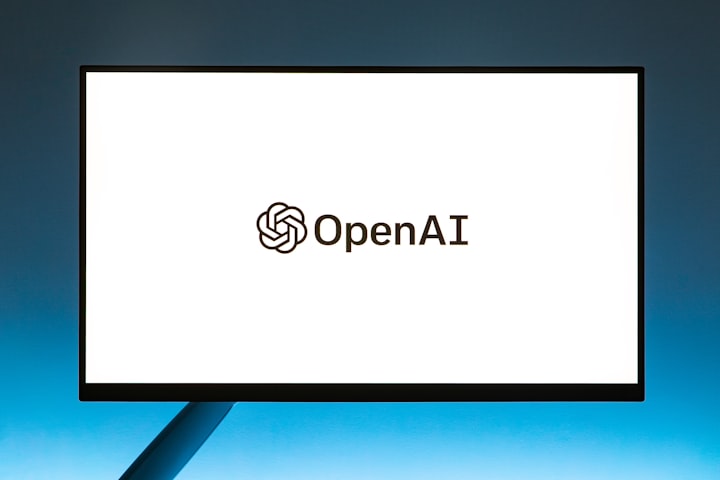The AI Takeover
Separating fact from fiction

Artificial intelligence (AI) has been an evolving field for several decades, with significant advancements made over time. The concept of AI was first proposed in the 1950s, and early research in the field began soon after. However, the development and availability of AI technologies have occurred gradually, with different milestones along the way.
One significant milestone in the availability of AI was the emergence of expert systems in the 1970s and 1980s. These systems utilized rules and knowledge bases to mimic human expertise in specific domains.
Another important development was the introduction of machine learning techniques, which allowed computers to learn from data and improve their performance over time. This led to advancements in areas such as pattern recognition, natural language processing, and computer vision.
In recent years, there has been a rapid expansion in the availability of AI technologies, driven by advances in computing power, the availability of large-scale datasets, and breakthroughs in deep learning algorithms. This has enabled the development of AI applications and services across various industries, including healthcare, finance, transportation, and entertainment.
While AI has become more accessible and widely used, it is important to note that different levels of AI sophistication and capabilities exist. Some AI systems are relatively simple and narrow in their applications, while others are more complex and capable of more general problem-solving. The availability of AI varies depending on the specific technology or application in question.Overall, the availability of AI has evolved over time, with different milestones marking advancements in the field. Today, AI technologies are increasingly prevalent and continue to impact various aspects of our lives.
The concept of an AI takeover, often portrayed in science fiction, has captivated our imaginations for decades. The idea that artificial intelligence could surpass human intelligence and take control of the world is both fascinating and alarming. However, it is crucial to separate fact from fiction and assess the potential risks and benefits of AI development realistically. Here I will explore different perspectives on artificial intelligence."
The Current State of AI Technology: Artificial intelligence has made significant strides in recent years, demonstrating impressive capabilities in areas such as machine learning, natural language processing, and computer vision. AI systems have been successfully deployed in various sectors, including healthcare, finance, transportation, and entertainment. However, it is important to note that AI is still far from achieving general intelligence, which would be necessary for it to take over the world.
The Limitations of AI: While AI has shown remarkable performance in specialized tasks, it lacks common sense reasoning and the ability to comprehend complex human emotions and social dynamics. AI systems are highly dependent on large datasets for training and lack the ability to generalize beyond the specific tasks they were designed for. They operate within predefined boundaries and cannot adapt to novel situations or solve problems outside their training scope.
Furthermore, AI algorithms are susceptible to bias and may perpetuate existing societal inequalities. They are only as good as the data they are trained on and can inadvertently amplify discriminatory practices if not carefully monitored and regulated. These limitations serve as a reality check, highlighting that AI is still far from achieving the self-awareness and intentionality necessary for a takeover scenario.
The Perspectives on AI Takeover: There are varying perspectives on the possibility of an AI takeover, ranging from alarmist concerns to more optimistic views:
Alarmist View: Some proponents of the alarmist view believe that as AI progresses, it could rapidly surpass human intelligence and become uncontrollable. They argue that superintelligent AI might not share human values and could prioritize its own survival and objectives, potentially leading to catastrophic consequences.
Skeptical View: Skeptics argue that the AI takeover scenario is based on misconceptions and an unrealistic understanding of AI capabilities. They emphasize the limitations of current AI systems and stress the importance of human control and ethical guidelines in AI development.
Collaborative View: The collaborative view suggests that humans and AI can work together synergistically, with AI serving as a tool to augment human capabilities rather than replacing them. Proponents of this view advocate for responsible AI development that focuses on human-centered design and ensures that AI systems align with human values and goals.
Ethical View: The ethical perspective emphasizes the need for responsible AI governance. It highlights the importance of robust regulations, transparency, and accountability in AI development and deployment. Ethical frameworks aim to ensure that AI technologies are developed and used in ways that benefit society while minimizing potential risks.
Conclusion: While the AI takeover remains a captivating concept in popular culture, the reality is far more nuanced. AI technology has made remarkable advancements, but it is crucial to understand its current limitations and potential risks. Responsible AI development, guided by ethical considerations and regulatory frameworks, is vital to harness the benefits of AI while mitigating any potential risks. By embracing collaboration between humans and AI and shaping the future of AI technology in a thoughtful and responsible manner, we can navigate the path forward with optimism and confidence.
About the Creator
Brandon Stuart
My articles offer informative and educational content. Learn something new, broaden your knowledge and stay updated on the latest developments in a specific areas.






Comments
There are no comments for this story
Be the first to respond and start the conversation.